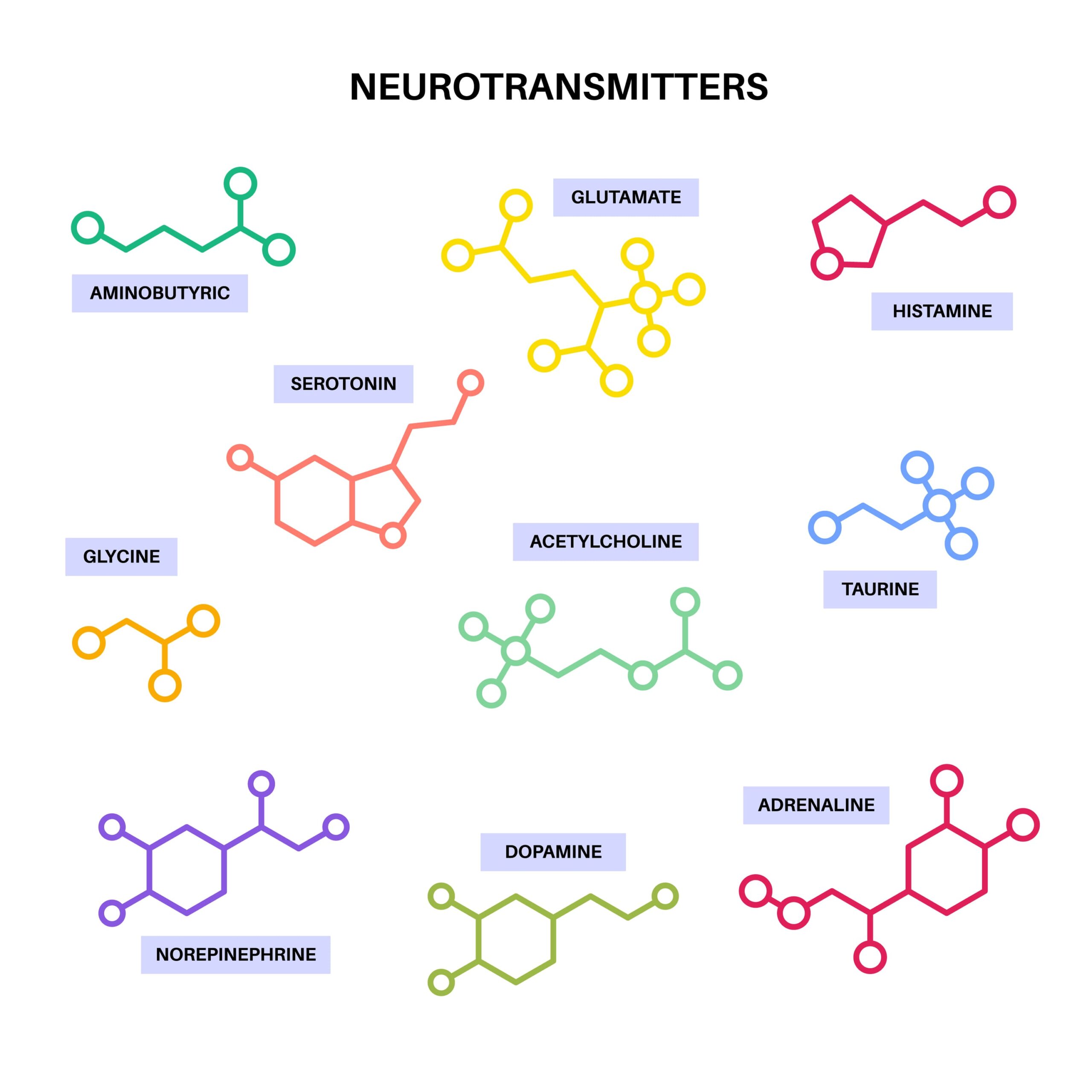Neurotransmitters are essential chemicals that play a crucial role in the communication between neurons in the brain and other parts of the nervous system. They are responsible for transmitting information between nerve cells, allowing them to communicate and coordinate different functions throughout the body. Without neurotransmitters, the brain and nervous system would not be able to function properly.
There are dozens of neurotransmitters that have been identified, each with its own unique function and mode of action. Some of the most well-known neurotransmitters include:
Dopamine is perhaps the most well-known neurotransmitter, as it is often associated with pleasure and reward. It is involved in regulating movement, motivation, attention, and learning. Too much or too little dopamine can lead to a range of disorders, such as Parkinson’s disease, schizophrenia, and addiction.
Serotonin is another important neurotransmitter that is involved in regulating mood, appetite, and sleep. It is sometimes called the “feel-good” neurotransmitter, as it can induce feelings of happiness and well-being. Low serotonin levels have been linked to depression, anxiety, and eating disorders.
Acetylcholine is a neurotransmitter that plays a critical role in memory and learning. It is also involved in regulating muscle contractions, heart rate, and other bodily functions. Alzheimer’s disease is associated with a loss of acetylcholine in the brain.
Norepinephrine is a neurotransmitter that is involved in the body’s “fight or flight” response. It helps to regulate heart rate, blood pressure, and breathing during stressful situations. Low levels of norepinephrine have been linked to depression and anxiety.
GABA (gamma-aminobutyric acid) is the brain’s primary inhibitory neurotransmitter. It helps to calm down overactive neurons, which can lead to feelings of anxiety and stress. GABA is often targeted by medications that treat anxiety disorders, such as benzodiazepines.
The balance of neurotransmitters in the brain is critical for maintaining optimal brain function. Imbalances in neurotransmitter levels have been linked to a variety of neurological and psychiatric disorders, including depression, anxiety, schizophrenia, and Parkinson’s disease.
There are several ways that neurotransmitter levels can be altered. Some medications work by targeting specific neurotransmitters, either by increasing their levels or blocking their effects. Other factors that can affect neurotransmitter levels include diet, exercise, and stress.
Understanding the role of neurotransmitters in brain function is essential for developing new treatments for neurological and psychiatric disorders. By studying the complex interactions between neurotransmitters and the brain, researchers are gaining a better understanding of how the brain works and how it can be treated when things go wrong.
In conclusion, neurotransmitters are an essential component of the brain and nervous system, allowing neurons to communicate and coordinate different functions throughout the body. By understanding the different types of neurotransmitters and their functions, researchers can develop new treatments for neurological and psychiatric disorders and gain a deeper understanding of how the brain works.




